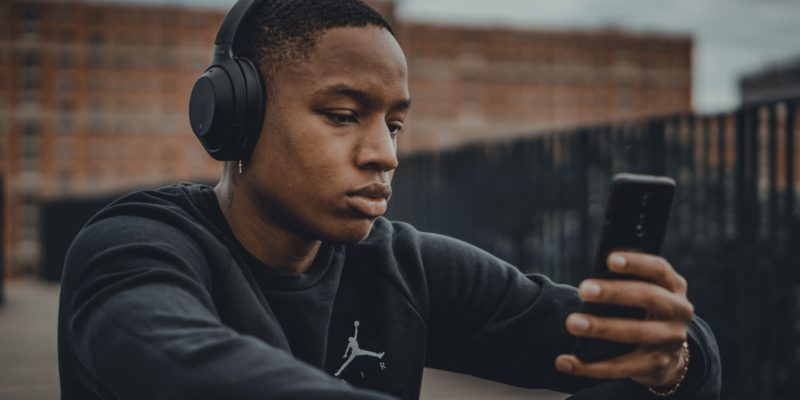Facebook is finally getting serious about audio. Speaking to Platformer journalist Casey Newton on chat app Discord, Facebook CEO Mark Zuckerberg outlined a three-to-six month product development roadmap for the social network’s new audio offerings.
Takeaways
Facebook’s audio plans include three distinct formats.
- Its new short-form audio product – Soundbites – is billed as a TikTok- or Instagram-like experience for audio. The ‘social audio’ format is described by Facebook as a way to share “creative audio clips for capturing anecdotes, jokes, moments of inspiration…”.
- Slower to the podcasting party than some, Facebook is going to build a podcast discovery tool in partnership with Spotify. The plan is to allow podcast creators to distribute their work on the network and for Facebook users to discover and listen to podcasts on the page.
- A Clubhouse competitor – Live Audio Rooms – will work through Facebook Groups and Messenger. Unlike Clubhouse, Facebook has said it will support the conversion of live conversations into on-demand recordings.
Audio elsewhere
Live listening app Clubhouse is credited with sparking at least some of the interest in social audio. Ahead of this announcement from Facebook, several platforms had already unveiled plans to compete with their own audio products.
- Twitter’s audio-based Spaces let users gather individuals or groups for live conversations. They are only visible while active, disappearing once they end.
- Reddit Talk will let redditors host live audio conversations in their communities, mirroring the Reddit AMA format, with hosts able to invite and mute participants.
- LinkedIn has said it is testing a ‘social audio experience’ for inclusion within its app to allow creators on its network to connect with their community.
Facebook’s new creator focus
- Facebook has been very clear in its focus on smaller players with its new audio suite. After that Discord chat, Casey Newton said Zuckerberg positioned his plans for audio as ‘helping the little guy’, individual creators rather than big publishers.
- The good news for publishers is the suggestion that Facebook would switch its position on allowing users access to their page subscribers. Currently you can’t export Facebook Page subscribers or Instagram followers.
- “When we talk about giving favorable terms [to creators], it’s actually not just the economics,” said Zuckerberg. “I think it’s also the portability, so that we creators know that if they start building up a business here, that they’re not just gonna be locked in, and will be able to take it to different places.”
Of course, Facebook’s primary interest is Facebook – it wants to keep users active on the platform for as long as possible. “Catching the modern digital audio wave in this manner falls from that imperative,” said podcast industry commentator Nicholas Quah.
“Will any of these things stick? TBD, my dude,” writes Quah. “However, despite the fact that I’m not a particularly close observer of Facebook, even I know that the company has a… let’s say, mixed track record when it comes to new product innovations in recent years. I wouldn’t bet the farm on this.
Is the live-audio market big enough?
The popularity of wireless headphones added to widespread working from home, fueled an audio boom last year. But as the world returns to something close to normal, industry observers are beginning to wonder if the live-audio market can sustain the number of players that are entering the space.
Clubhouse in particular is under scrutiny as the pace of downloads has slowed dramatically, going from 9.5 million downloads in February to just 2.7 million in March. It may turn out that the power of the platforms will overwhelm the start-up despite its $4 billion valuation.









